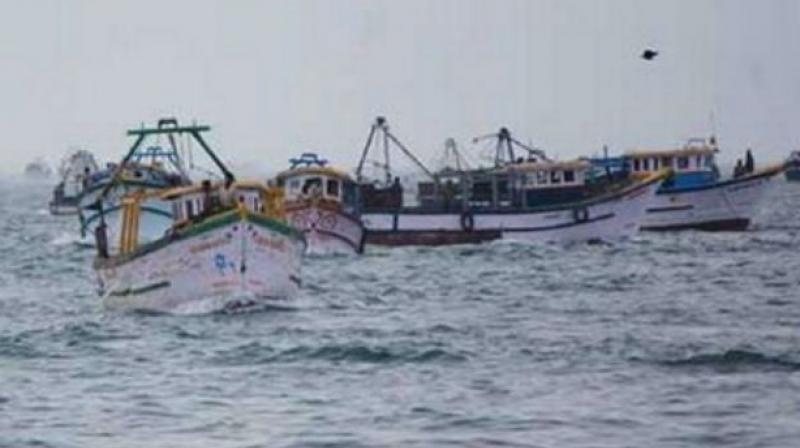Tamil Nadu: Annual ban on seafood, cost to shoot up
Chicken, egg alternatives. Fishermen demand compensation hike.

Chennai: Seafood will now cost almost 50 per cent higher as the annual 45-day fishing ban in the Bay of Bengal came into effect Friday midnight. The ban is enforced by the state fisheries department and the coastal police to ensure that the marine breeding season beginning now is not disrupted by mechanised fishing. Seafood prices have been climbing already these past couple of weeks due to low catches and high fuel prices.
“With the ban now coming into force, we need to procure fish from Kerala, Mangalore and Gujarat, at high cost. Chennai will see seafood prices go up during the ban period”, said K. Bharathi of the South Indian Fishermen’s Federation.For instance, he said, the top-favourite Vanjiram fish normally costing around Rs 300-350 a kilo has already touched '400 now and could shoot up to Rs 600 next week.
There are about 10,000 mechanised boats operating out of 591 fishing hamlets down the TN coastline. Chennai has 54 fishing hamlets with about 1100 boats. The total daily consumption of seafood in the districts of Chennai, Kancheepuram and Tiruvallur varies between 120 tonnes (on normal days) and 150 tonnes (Sundays), which must now be sourced from the western coast during the ban period. “We have two options now”, says Chennaiite Sudha Gopal. “We could replace seafood with eggs and chicken on the dining table; mutton is prohibitively expensive anyway. Otherwise, we could turn vegetarian till the sea opens up to our fishermen again”.
Fishermen demand compensation hike. Meanwhile, the fishermen have demanded that the government should adequately compensate them for the loss of income during the ban period. “We are being paid Rs 5000 per family during the ban. We are asking for substantial rise”, said A. Mahendran of Puthumanikuppam hamlet in north Chennai. “This is a tough period for us”, chimed in his wife. “We have this fishing ban and then, we must pay the annual school fees for the kids. We end up borrowing on high interest rates”.

